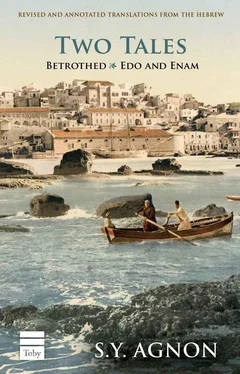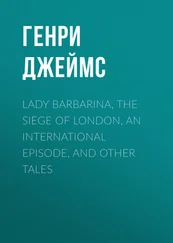II
This is how Rechnitz’s interest in his field began. When he first entered the university he chose no special subject but applied himself to all the sciences, and particularly the natural sciences, for these had drawn his heart. He already thought of himself as an eternal student, one who would never leave the walls of the academy. But one night he was reading Homer. He heard a voice like the voice of the waves, though he had never yet set eyes on the sea. He shut his book and raised his ears to listen. And the voice exploded, leaping like the sound of many waters. He stood up and looked outside. The moon hung in the middle air, between the clouds and stars; the earth was still. He went back to his book and read. Again he heard the same voice. He put down the book and lay on his bed. The voices died away, but that sea whose call he had heard spread itself out before him, endlessly, while the moon hovered over the face of the waters, cool and sweet and terrible. Next day Rechnitz felt as lost as a man whom the waves have cast up on a desolate island, and so it was for all the days that followed. He began to study less and read books about sea voyages; and all that he read only added to his longing, he might as well have drunk seawater to relieve a thirst. The next step was to cast about for a profession connected with the sea: he took up medicine, with the idea of becoming a ship’s doctor. But as soon as he entered the anatomy hall he fainted; he knew then that this could never be his calling. Once, however, Rechnitz happened to visit a friend who was doing research on seaweed. This man, who had just come back from a voyage, showed him the specimens he had brought. Rechnitz saw and was amazed at how much grows in the sea and how little we know about it all. He had scarcely parted from his friend before he realized what he was seeking.
Perhaps this story about Rechnitz reading Homer, with all that followed in its wake, is little more than a legend. But after all it would seem to be less unlikely than other explanations of how he began his career. In any case, when he had finished his studies he left for the Land of Israel; a prize received from the university and a gift bestowed on him by Herr Gotthold Ehrlich defrayed his expenses.
III
This Herr Ehrlich who assisted Jacob Rechnitz on his journey, and who had previously helped him to enter high school, was a wealthy merchant and the honorary consul of a small country which does not take up much space on the map. The garden of his villa adjoined the house of Rechnitz’s father, and when Jacob was small he used to play with Shoshanah, the Consul’s only daughter. She was a capricious child, who took a special fancy to the boy and would not allow any of the other little girls to join in their games. “Jacob is all mine,” she used to say, “and when I’m grown up I am going to marry him.” To confirm this, she cut off one of her curls, as well as one of his, and mingled them together. She burned them and they ate the ashes and took a solemn vow to be faithful to each other.
Jacob was treated kindly by Shoshanah’s parents. She was an only child, so that whoever won her affections won theirs as well; besides which, the boy’s own intelligence and good manners made him a favorite. Frau Gertrude Ehrlich, a lady whose health was delicate, took to him especially. She would give him presents that suited the occasion and so did not cause embarrassment; as for the Consul, he helped Jacob’s father to meet the cost of his son’s schooling, Rechnitz’s income not being enough to educate the boy according to his talents. With the Consul’s aid Jacob entered high school, and later on, the university.
In his first school year, Jacob spent a good deal of time with Shoshanah. On summer days they made flower chains for one another, which they fitted out with butterflies’ wings. In winter they went sliding on the ice-covered pond in the garden. Jacob helped Shoshanah with her lessons, and she taught him to walk on tiptoe and similar accomplishments. In the second year they grew rather more distant.
This was chiefly because Jacob’s father had sold his house to satisfy his creditors and rented an apartment in another neighborhood. All that year Jacob was much occupied with his studies, while Shoshanah turned to the more usual pursuits of the daughters of the rich, to music and painting and outdoor sport. Even so, they were not truly separated, for the Consul’s wife would invite Jacob to lunch on the first Sunday of every month, as well as on Shoshanah’s birthday. This continued until Frau Ehrlich fell sick, and the house was closed to guests, and Shoshanah was sent to a boarding school for girls in another city.
After that, the Consul would invite Jacob twice a year to visit his office. The walls were covered with silk hangings, to which were attached two large portraits, one of his wife and the other of his daughter. Frau Ehrlich wore a long dress whose hem swirled all around the base of the picture. The color of the dress was sky blue, and it fell to the frame fold on fold, so that she seemed to move in a mist. On her head was a small bonnet made up like a kerchief, whose laces lay along the back of her neck. Shoshanah’s dress, however, reached only to her knees and her legs seemed to tremble lightly. When the sun lit up the picture she appeared to be on the point of running. Besides these pictures on the wall, two more stood on the table, again of mother and daughter, and before them was set a moist rose in a glass of clear water. The Consul was a man of tidy habits; before receiving visitors he would clear away all papers and ledgers not needed for the occasion, so that it seemed to Jacob, on entering, that the office was built solely in order to house the pictures, with the Consul like an old attendant seated constantly on guard. This impression was confirmed when, after Jacob had sat down, the Consul stood up from his chair and added water to the glass. The boy was always reluctant to raise his eyes above the level of his host’s head, as if he had no right to look at the portraits. All the same, they imprinted themselves on his mind, and took on a life of their own: sometimes, he saw Frau Ehrlich vanishing into the mists, and Shoshanah running on and on with a wet rose in her mouth. As for the Consul, he would greet Jacob kindly, remark how he had grown, and address him as if he were another adult.
In winter he would take Jacob to a coffee house where the tableware was of silver and the seats were soft. As soon as the waiter saw the Consul enter, he brought him his coffee, for the Consul was known there and everyone could anticipate his requests. “What shall we order for our young friend?” asked the Consul, beaming at Jacob; he would then call for cocoa with whipped cream and a tray of cakes. They would sit together until dark, and when they parted the Consul would bid him convey greetings to his father and mother.
In summer he took him riding in a jaunting-car with rubber wheels. They drove out of the city for an hour or so till they reached Katharinenhof, which was fenced round with thick hedges whose fresh green shoots were beginning to darken. They entered a great park with circular flower beds and a statue of the Emperor. Somewhere about there were cows and cattle sheds, but you could neither see them nor smell them; behind the park was a view of mountain peaks, with the odor of pine trees drifting down, and the whole park seemed on holiday. They would sit down with the new-mown grass like mats at their feet and drink the excellent coffee for which this place was famous. The cream stood on it like a dollop of snow just ready to melt; and with the coffee there were little cakes to eat, made with cheese and poppy seeds and raisins; or else there was rye bread whose very smell made you hungry, and whose taste made you strong. They served it with fresh, creamy butter glistening with drops of water. Afterwards, the Consul lit a cigar and talked to Jacob about his studies; then, when the cigar was smoked, he lit a fresh one, rose from the table and said “Let’s go,” in a tone implying that enough time had been spent on pleasure, and now business called. Jacob got up hurriedly, watched the proprietor help the Consul on with his coat and blushed with embarrassment as the man came over to assist him too. He looked down at the ground, asking after the health of Frau Ehrlich. The Consul removed the cigar from his lips and was silent for a moment; then he said, “I wish I could tell you that she is well.” Since he could not quite say that, yet did not wish to leave Jacob sad, he added, “Shoshanah, though, as I see from her letters, does very well.” And Jacob, duly inclining his head, replied, “Please convey my best wishes to the gentle Fräulein.” — “I shall do that,” Shoshanah’s father replied, in a tone suggesting that this was a task not lightly performed, but one which he would see carried out.
Читать дальше












